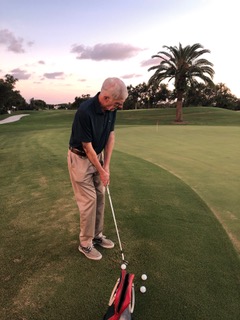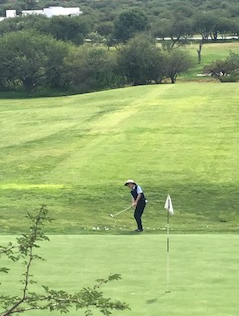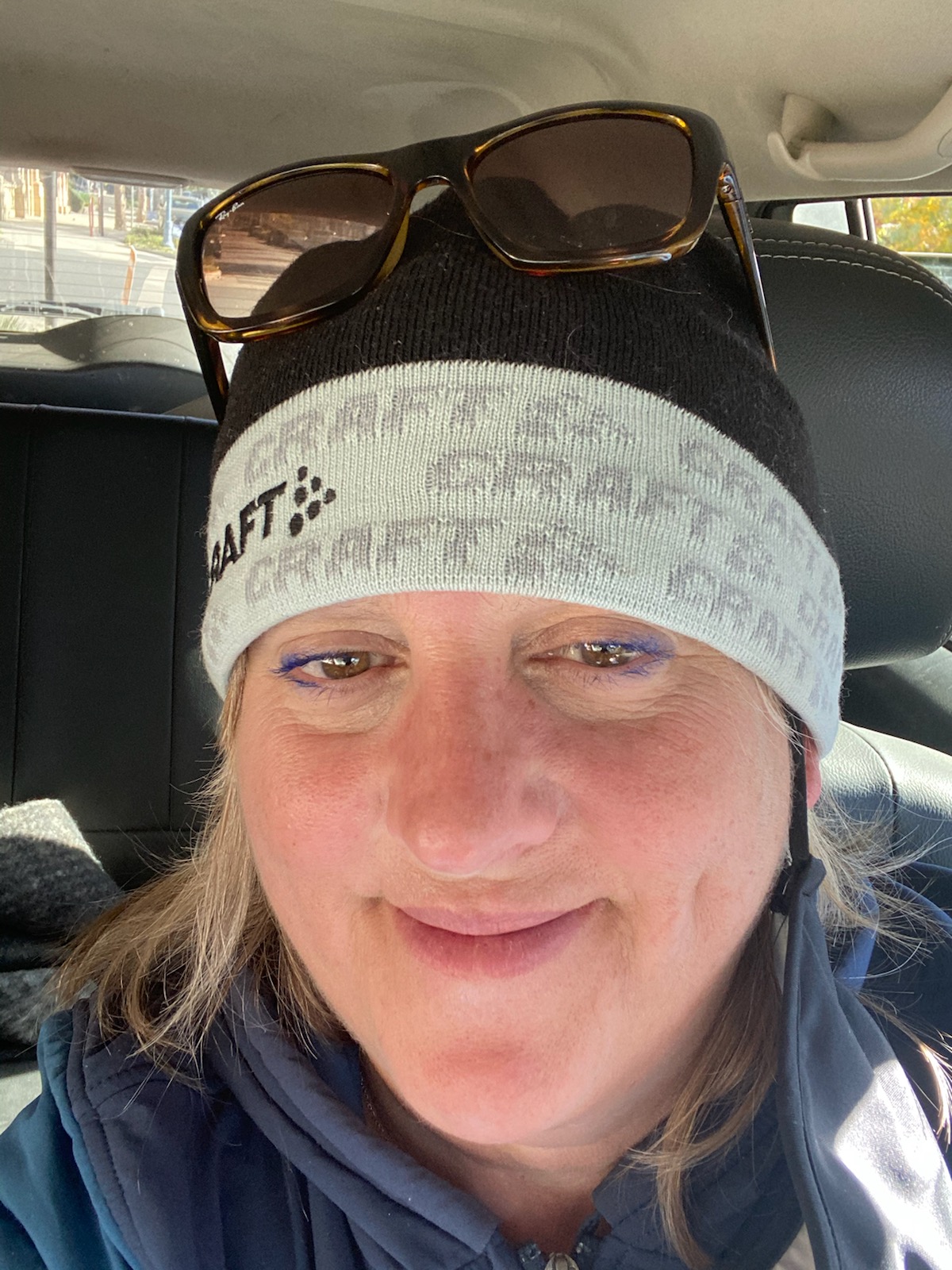Last week, a friend of mine sent an email saying she’d just flown to Germany and Mexico with a close friend who has cancer. They were seeking alternative therapies beyond the allopathic route. You know, the usual pattern. First allopathy, or Western medicine, then homeopathy, and other modalities of treatment on an ad hoc basis. There was nothing unusual about this path my friend, Sonia Machaco-Hines (who is a life coach and film director) pursued here.
While she detailed the overseas zigzags, she never mentioned the friend was male. In fact, it took several emails to learn the friend’s gender, or name. This struck a chord, because most women know what a cancer diagnosis, then treatment campaign, looks like.
There will be ribbons, support circles, rallies, special hats, 5K races. Think Susan G. Komen “Race for the Cure” on the vanguard of women’s cancer movements since 1982. Or the Sherry Lansing Foundation, and Lansing, Katie Couric, and others who are active in “Stand Up 2 Cancer.” They march toward wellness in tandem with all the pink-fisted ladies who’ve blazed trails in public perception of not only the label, but the battle and recovery/reintegration phases, too.
But when a man has cancer? Those avenues of support suddenly seem very gender-specific. Almost exclusively female on the outside.
When Machado-Hines finally revealed that the man in question is Samuel I. Russell, or “Si” Russell as he is known to friends, the request to share his story was sent in the hope of getting a glimpse into one man’s take on the long walk on this journey back to health.

This is probably not someone who would be wearing pink ribbons and going to rallies, per se. An avid golfer, Si runs a foundation that offers scholarships to students with golf-related professions in mind. While there are no definitive studies on how men and women defeat cancer differently, they both go into battle mode nonetheless. The original title was “ A Hole in One’s Health, a Cancer Golf Love Story.” But as the conversation unfolded, it became clear this is a much larger discussion, one you can share amongst yourselves.
This is about how men and women approach their private struggles with cancer, and the meaning they find on this unplanned journey across the terrain of their lives.
Si Russell’s full biography follows below, but here’s his Thrive story.
Quendrith Johnson: What was the process you went through upon hearing the diagnosis; and when you found out, how long did it take for you to make a plan?
Si Russell: Well firstly, we followed the traditional route and met with the appropriate medical professionals (Oncologist, Immune Therapist, had additional recommended testing) but we found the traditional approach of treatment was not very promising and the side effects difficult to endure. I reached out to some of my stable people such as Sonia Machado Hines and her husband Terence Bernie Hines, my wife – Wendy Russell and Dr. Rene Reed. We got busy looking for alternative solutions through competent naturopaths and medical professionals experienced with Cancer. We spoke with patients that had taken an alternative route and with the complete data made our plan within two weeks of my diagnosis of Stage IV Melanoma.
Quendrith Johnson: How many countries have you visited for alternative treatment, or did you try Western medicine first?
Si Russell: We did attempt Western Medicine first but truthfully as the data came back we found it would not improve my quality of life and perhaps not even extend it. I have traveled to just two countries but as far as Germany and recently to San Miguel, Mexico. The excitement in this, is I hadn’t been out of the US in over 50 years so it made for some new unanticipated trepidation.
Quendrith Johnson: Did you feel diminished by a cancer label, or did it energize and mobilize you?
Si Russell: I honestly can share that at first I had no part of it… it had nothing to do with my desire to survive or how it may interfere with any future planning.
As the data came closer to home with the traditional medical visits as well as the extended travel it has taken a toll on my body. I’ve spent weeks in the hospital away from my family and friends, endured bland meals with monitored flavor enhancers (like salt and oils) and I’ve lost lots of weight and while it could’ve been fun, ‘it wasn’t.’
I had to buy new clothes and some I didn’t like because the slacks that I love no longer fit and are no longer made at Nordstrom.
Quendrith Johnson: What do you believe is the strongest asset one has in a situation where there is this much vulnerability on a personal level?
Si Russell: I really think that I’ve had to follow my heart and instincts and do what ‘I’ I feel is correct for ME! As I believe what ‘I’ feel is correct will work best.
I’ve also found certain individuals who truly empower me with “believe in yourself” that is given with an unwavering support.
And I’ve found additional people with that kind of spirit and have knowledge in the alternative fields, who have inspired me to move forward with what it may entail.
Quendrith Johnson: Unlike golf, the game of life does not come with a mulligan option, so how did you restart treatment after a failing therapy?
Si Russell: I haven’t failed yet. I have chosen the alternative route because of it’s survival potential with minimal, if any, invasive lasting effects.
Quendrith Johnson: Is there a concentration level involved in surviving the therapies for your condition, and is there a parallel to the perfect swing level of concentration?
Si Russell: There is one. I think it’s unwavering resolve to achieve your intention, which in my case is overcoming this disease. And not be deterred by any self-worry, self-lack of confidence in a given path despite missing knowledge of the road, counter-thoughts from others or disappointments in a treatment.
I use it all to make my intention STRONGER.
Quendrith Johnson: What are the lighter moments thus far, and can you share the changes in mindset when you’ve had “up” days?
Si Russell: Anytime I gain weight is another birdie and learning how to manage my condition myself (like reading materials to improve my eating habits or immune system) are my cocktails at the end of an 18 hole round.
Any day that I have the energy to go putting and chipping at a beautiful sunset is life itself!
Quendrith Johnson: If you had a look-back, would you do anything differently health-wise or habit-wise or career-wise given the circumstances as they are now?
Si Russell: I’d have done stem cell therapy five years ago when I first discovered it, as the information resonated with me at the time; and is a fantastic preventative measure like meeting with the golf pro to improve on your swing.
Quendrith Johnson: How much emphasis did you put on the label (cancer) when you first learned about it, and did it erode your sense of self initially?
Si Russell: For me it created a problem that I didn’t want to have.
I had to shift emphasis to the threat of life in lieu of projects associated with areas of interest, re-establishing my love of golf.
Quendrith Johnson: Is there a worldview, or any ingrained beliefs, you hold or have held, that changed radically when you became impacted by this health issue?
Si Russell: I had to learn about this new World of Cancer which was foreign to me and it was always something ‘someone else had.’
This went as far as learning what was ‘Stage IV’ and how would this affect me; what were the body parts being affected by this disease, and its potential consequences on my body/life/family.
I had to realize how many people my life affects, and getting back to trusting myself, and not putting myself in a position where the opinion of others could – or would – interfere with my master plan to rid myself of this disease.
Quendrith Johnson: Do you envision a day when a label (or illness or condition) does not define a person, but when we can see the label as an impediment to getting “well”?
Si Russell: I can. Health professions view the condition no more than how a golf pro would a correction of the mechanics in golf, which becomes a label like spotting a novice on the golf course, and this provides no solution. Getting to the core of the problem with effective solutions toward the end of a recovery of health for the individual in the least invasive manner that will improve their quality of life IS the solution.
Proper tools and education being used to restore the individual’s zest for life, with no self-interest or predetermined plan, are the way to turn the tide of good health for all.

Mr. Russell is the founder of the Samuel I. Russell Foundation, which can be visited here http://www.samuelrussellfoundation.org/. His brief biography can found on (https://www.linkedin.com/in/si-russell-6116b411a/) on LinkedIn.
Special Thanks to my friend Sonia & her friend Si.
# # #


